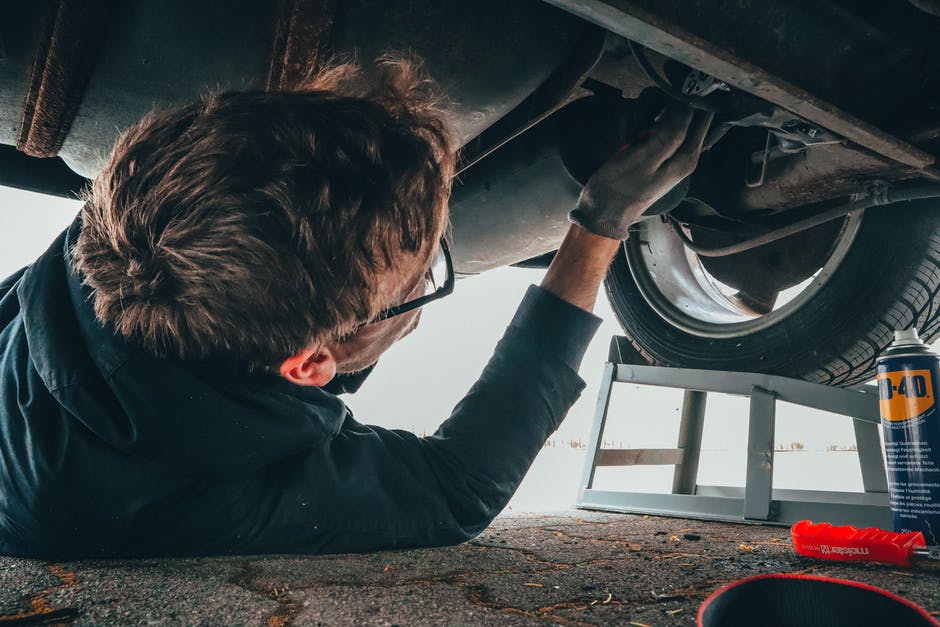A staggering $773.50 a month — that's how much the cost of car ownership in the US was in 2019. That's a 24% increase from the year before!
In fact, in December 2019, new vehicles had an average price of $38,948. That’s $656 more expensive than car prices in December 2018.
All these prove how expensive it is to own a car in the US. However, major car repairs can also be costly. This leaves consumers in a huge dilemma: To repair or to buy a new one.
If you’re one of these folks, your best bet would be to first learn how to get rid of a car that doesn't run. You might want to sell your non-working car first and then buy either a new or a used vehicle. This way, you can have an extra source of cash to pay off your new car purchase.
The question is, are there really people willing to pay you cash for a “useless” vehicle? How easy (or hard) is it to sell a car that doesn’t run?
We’ll answer all these questions in this post, so be sure to read on!
Why Is It Not Running in the First Place?
Figuring out what to do with a car that doesn't run starts with determining why it's not running in the first place. Is it non-functional because its major parts — like the engine — no longer work? Or is it completely rusty and broken down, as in it's ready for junking or salvaging?
Your answer to these questions will dictate the best course to take on getting rid of your car. If the problem is with the engine, consider getting it repaired, replaced, or rebuilt first. Do note, however, that a rebuilt engine for standard vehicles can already cost you around $1,200 to $4,000.
What if your ride no longer works because it needs a lot of pricey car repairs? Let's say you have a failed transmission as well as damaged engine cylinders. In this case, it may be best to simply get rid of the entire car instead.
The Market for Non-Working Vehicles
90% of a car's body would go into recovery, recycling, or reuse at the end of its life. In short, 90% of a vehicle that no longer works still serves some purpose, thus, it still holds value. Just think of all the metal parts that a car contains — you can scrap it and make money off of them.
To give you an idea, over half of the weight of a car is due to all its steel content. What makes steel a big seller is its infinite recyclability. You can recycle or reuse steel as many times as you want without affecting its quality.
Repurposing is also a common practice for many other car parts, like plastic, glass, and rubber. Product manufacturers use these materials as a component of entirely new products.
Discarded rubber tires, for instance, can become crumb rubber. In fact, this is true for most of the 200 million vehicle tires that the world discards each year. Instead of filling landfills, these tires get ground up to become paving or infill material.
Lead batteries also have a huge market, considering their 99.3% recycling rate. The lead itself is reusable and is usually used in making new batteries.
All these stats and facts should already give you an idea of how big automotive recycling in the US is. It's so huge that it generates $32 billion every year. As such, you won't have a problem selling a car that doesn't run, seeing as almost all its parts hold value.
You can make the sale of your non-working car even more profitable by recovering the working parts. If there's any functional part of an otherwise non-working vehicle, you can sell it as-is. Some of the most in-demand parts recovered and sold as “used” are stereo systems and GPS systems.
The Best and Easiest Way On How to Get Rid of a Car That Doesn’t Run: Sell It As-Is
Cash for car buyers, be it in Denver, CO or in Farmington Hills, MI, buy almost all car makes, models, and years. They buy junk cars, flooded vehicles, or old pick-up trucks for cash. Moreover, they don't require sellers to perform any repair on the vehicle.
You don't even have to clean the car just to complete the sale! Just make sure that there are no snakes or vermin residing in your ride.
Totaled vehicles are also easier to sell to these businesses. There are very few private buyers willing to invest in totaled cars, after all. Aside from the risk of premature failure, totaled (and restored) cars typically have exorbitant insurance premiums.
If you're not keen on parting out your old wheels that no longer works, then just sell it as a whole. Again, you don't have to repair any part of it — junk, salvage, and old car buyers will take it off your hands as-is. Best of all, they'll collect the car for you, so you also don't have to pay costly towing services.
Turn That Non-Working Car Into a Money-Maker Now
As you can see, there are several ways on how to get rid of a car that doesn’t run. If you have a lot of spare time, then you can part it out and sell it piece by piece. If you want the fastest, no-fuss way to make some cash out of it, then sell it to a cash for car buying company.
Either way, no matter how useless it may seem, your inoperable ride is still worth something. So, turn into a quick cash source now rather than let it rot away in your garage!
Ready to let go of that car that you can’t drive anymore? Give us a call then! We can come to collect it for you, free of charge, and pay you with cold, hard cash!



